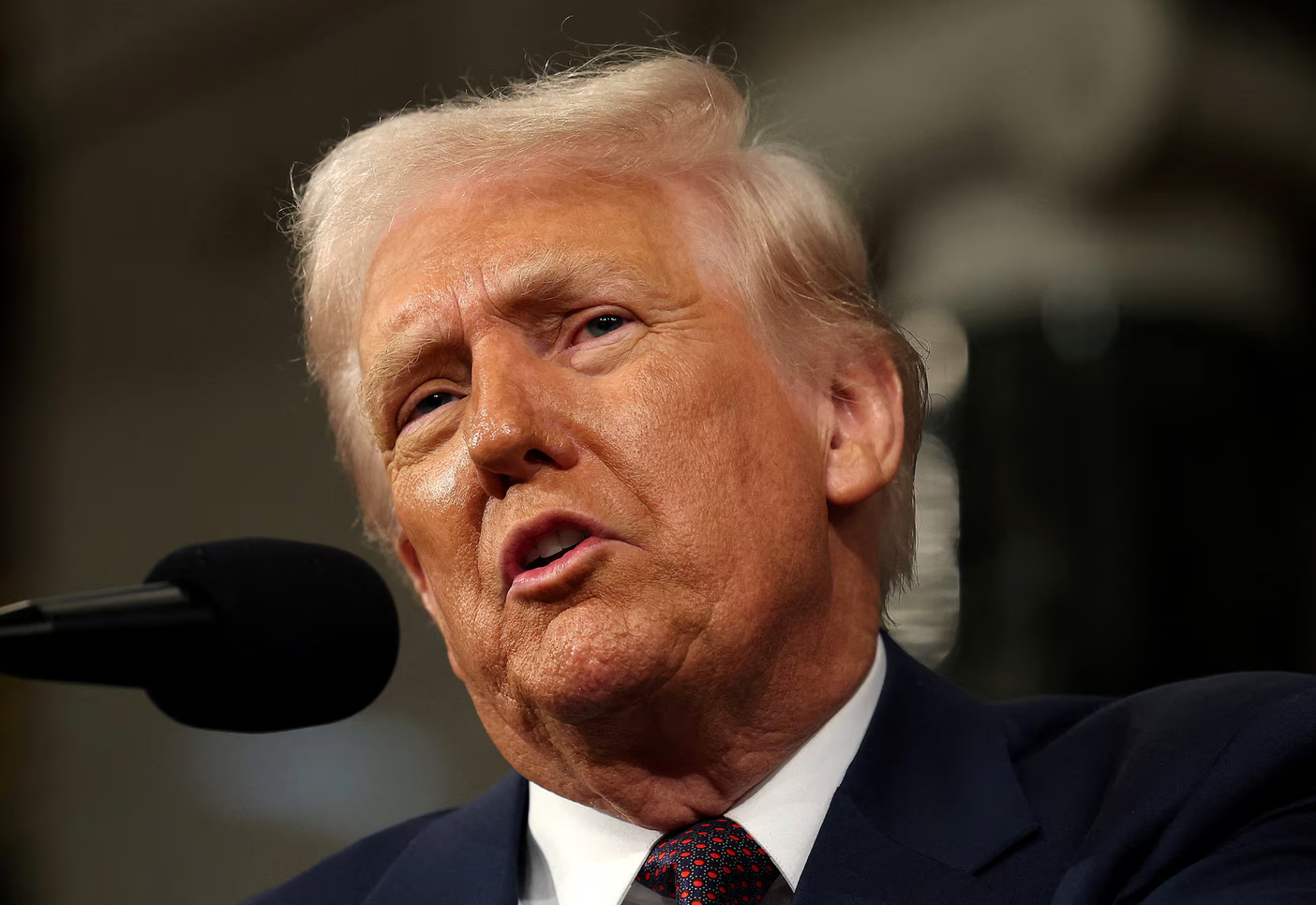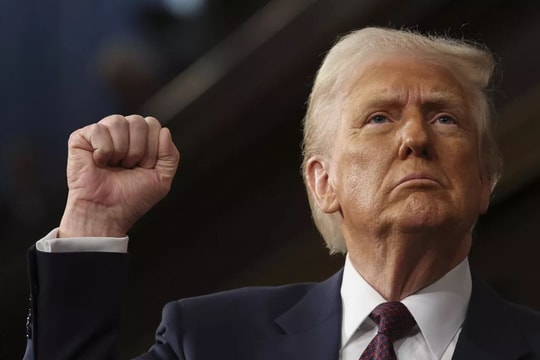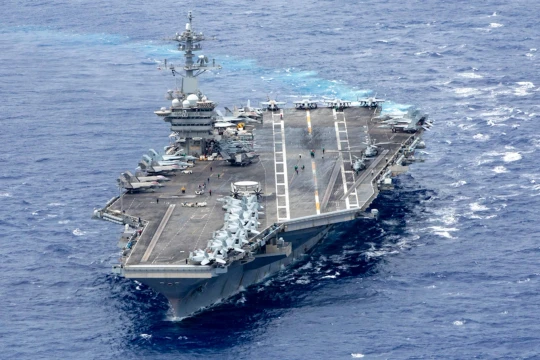President Trump threatens 'hell will fall' on Houthi forces
US President Donald Trump launched large-scale military strikes against Iran-aligned Houthi forces in Yemen on March 15 in response to the group’s attacks on shipping in the Red Sea. At least 24 people have been killed in the early stages of a campaign expected to last several days.

Mr Trump also warned Iran, the Houthis' main backer, that it must immediately stop supporting the group. He said if Iran threatens the US, "the United States will hold you fully responsible, and we will not be lenient!"
The air strikes – which a US official told Reuters could last for weeks – mark the biggest US military operation in the Middle East since Mr Trump took office in January. The move comes as the US ramps up sanctions pressure on Tehran in an effort to bring it to the negotiating table over its nuclear programme.
"To all Houthi terrorists, your time is up, and the attacks must stop, starting today. Otherwise, hell will come upon you like you have never seen before!" Mr. Trump posted on his Truth Social platform.
At least 13 civilians were killed and nine others injured in US airstrikes on Yemen's capital Sanaa, according to the Houthi-controlled Health Ministry.
At least 11 others, including four children and a woman, were killed and 14 wounded in a US strike in the northern province of Saada, according to Houthi-run Al-Masirah TV.
The Houthi forces' political bureau described the attacks as a "war crime".
"Our Yemeni armed forces are fully ready to respond to escalation with escalation," the group said.
Residents in Sanaa said the airstrikes hit a building in a Houthi-controlled area.
“The explosions were so violent that they shook the whole neighborhood like an earthquake. They scared our women and children,” resident Abdullah Yahia told Reuters.
Another airstrike on a power station in the town of Dahyan in Saada caused a power outage, according to Al-Masirah. Dahyan is where Houthi leader Abdul Malik al-Houthi regularly meets with visitors.
The Houthis, an armed movement that has controlled much of Yemen for the past decade, have carried out a series of attacks on offshore shipping since November 2023, disrupting global trade and forcing the US military to repeatedly intercept missiles and drones, significantly depleting America's air defense arsenal.
A Pentagon spokesman said that since 2023, Houthi forces have attacked US warships 174 times and commercial vessels 145 times. The Houthis claim the attacks are in solidarity with Palestinians in the war between Israel and Hamas in Gaza.
Other Iranian allies such as Hamas and Hezbollah in Lebanon have been significantly weakened by Israel since the conflict in Gaza began. Syrian President Bashar al-Assad, who had close ties to Tehran, was also overthrown by rebels last December.
However, Houthi forces in Yemen have remained resilient and continued their attacks, sinking two ships, seizing another and killing at least four sailors in a campaign that has disrupted global shipping, forcing companies to switch to the longer and more expensive route around South Africa.
The administration of former President Joe Biden previously tried to weaken the Houthis' offensive capabilities but there were limits to US action.
US officials, speaking on condition of anonymity, said Mr Trump had authorised a more aggressive approach.
The airstrikes on March 15 were carried out in part by fighter jets from the aircraft carrier Harry S. Truman, currently operating in the Red Sea, according to officials.
The US Central Command (CENTCOM), which oversees US troops in the Middle East, described the March 15 attacks as the start of a large-scale campaign across Yemen.
“Houthi attacks on American ships and aircraft (and our troops!) will not be tolerated; and their patron Iran has been put on notice,” US Defense Secretary Pete Hegseth wrote on X. “Freedom of navigation will be restored.”
Mr Trump also raised the prospect of even stronger military action against Yemen. "The Houthi attack on US ships will not be tolerated. We will use overwhelming, destructive power until our objectives are achieved," Mr Trump declared.
Iran's mission to the United Nations did not immediately respond.
On March 11, the Houthis announced they would continue to attack Israeli ships passing through the Red Sea, the Arabian Sea, the Bab al-Mandab Strait and the Gulf of Aden, ending a period of relative calm since January following a ceasefire in Gaza.
The US strikes came just days after a letter from Mr Trump to Iran's Supreme Leader Ayatollah Ali Khamenei offered to negotiate over Iran's nuclear programme.
However, on March 12, Mr. Khamenei refused to negotiate with the US.
Last year, Israeli airstrikes on Iranian facilities, including missile factories and air defense systems, in response to Iranian missile and drone attacks, significantly degraded Tehran's conventional military capabilities, according to US officials.
Iran denies any intention to develop nuclear weapons. However, according to the International Atomic Energy Agency (IAEA), the country is accelerating the process of enriching uranium to 60%, close to nuclear weapons level of about 90%.
In a diplomatic move, US Secretary of State Marco Rubio called Russian Foreign Minister Sergei Lavrov on March 15 to inform him about US strikes in Yemen. US and Ukrainian officials said Russia is currently using weapons supplied by Iran in the war in Ukraine.



.jpg)


